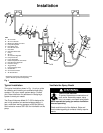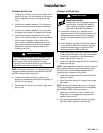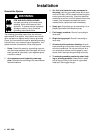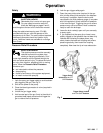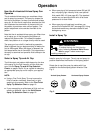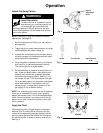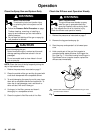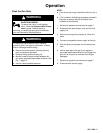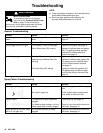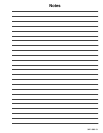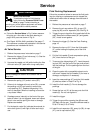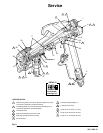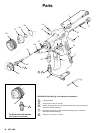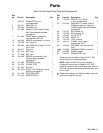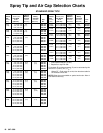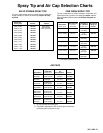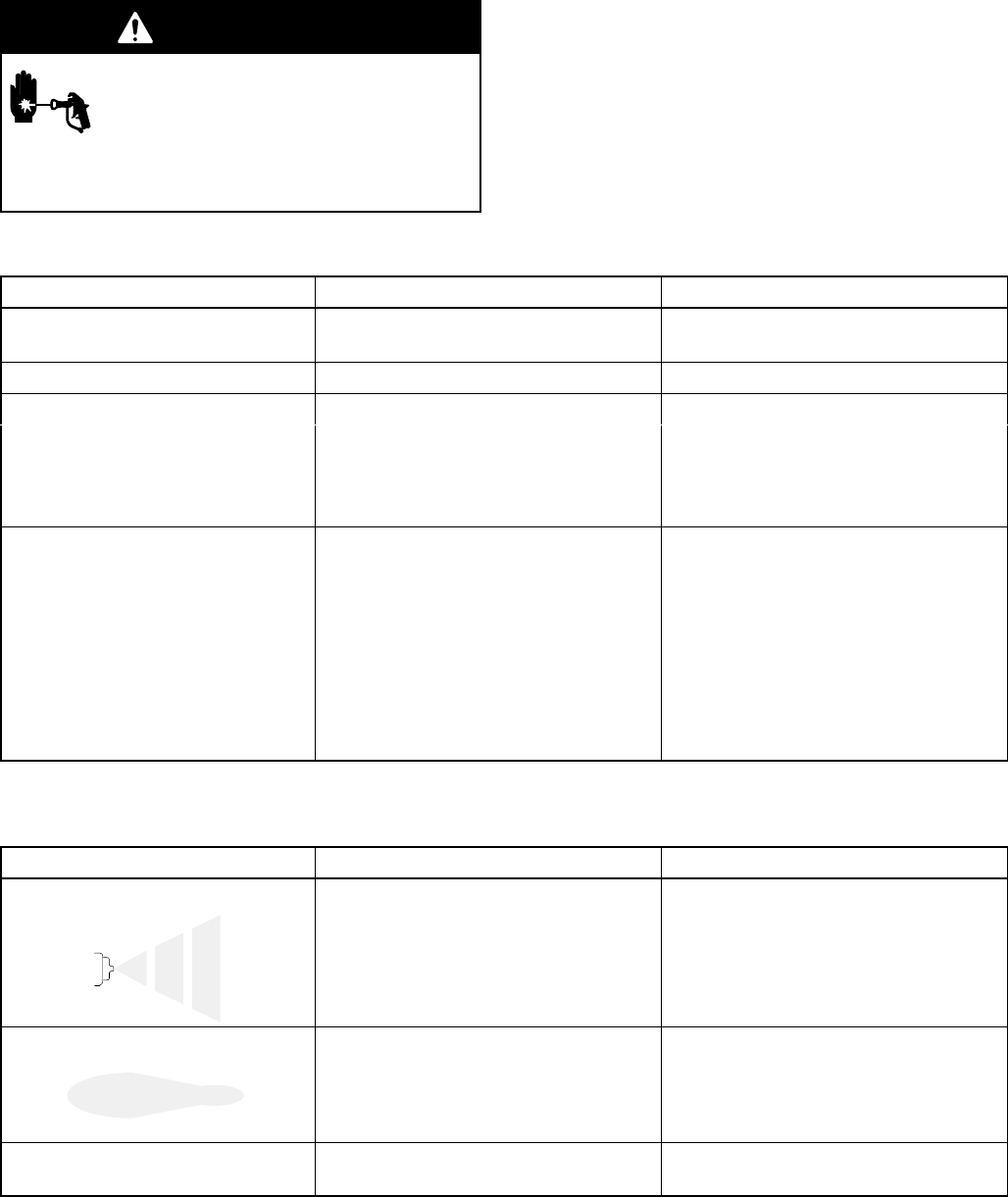
12ą307-586
Troubleshooting
WARNING
INJECTION HAZARD
T
o reduce the risk of a fluid injection
injury
, follow the
Pressure Relief Proce
-
dure
on page 7 before checking or
servicing any of the system equipment and when
-
ever you are instructed to relieve pressure.
NOTE:
D
Check all possible remedies in the troubleshooting
charts before disassembling the gun.
D
Some improper patterns are caused by the
improper balance between air and fluid.
General Troubleshooting
Problem Cause Solution
Fluid
leakage from back of fluid
needle
W
orn packings (47) or needle (5)
shaft
Replace packings or needle. See
page 14.
Air leakage from front of gun
Air valve (52) not seating properly
Clean/service air valve. See page 14.
Fluid leakage from front of gun
Fluid needle (5) worn or damaged
Replace fluid needle. See page 14.
Fluid leakage from front of gun
W
orn dif
fuser-seat (30) housing
Replace the dif
fuser-seat and gasket
(33). The gasket must be replaced
whenever the dif
fuser-seat is re
-
moved. See page 14.
Fluid in air passages
Fluid tip (28) seal leaking
T
ighten or replace fluid tip.
Fluid in air passages
Leaking around dif
fuser-seat (30)
housing
Replace the dif
fuser-seat gasket (33).
The gasket must be replaced when
-
ever the dif
fuser-seat is removed.
See page 14.
Fluid inlet fitting (67) leaking
Replace the fluid fitting gasket (33).
The gasket must be replaced when
-
ever the fluid fitting is removed. See
page 15.
Spray Pattern Troubleshooting
Problem Cause Solution
Fluttering
or spitting spray
Insuf
ficient fluid supply
Air in paint supply line
Adjust fluid regulator or fill fluid supply
tank.
Check, tighten siphon hose connec
-
tions, bleed air from paint line.
Irregular pattern
Fluid build-up or spray tip partially
plugged
On defective side of pattern, air horn
holes are partially or totally plugged
Clean spray tip. See page 10.
Clean air horn holes with solvent and
soft brush. See page 10.
Pattern pushed to one side, same
side of air cap gets dirty
Air horn holes partially or totally
plugged
Clean air horn holes with solvent and
soft brush. See page 10.



